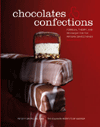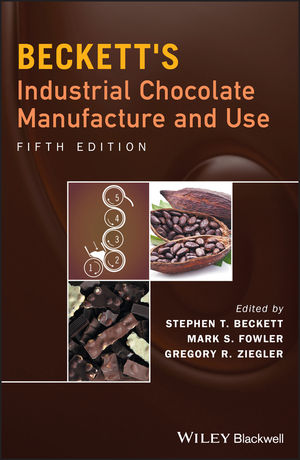WCF launches new methodology for measuring cocoa farmer household income
The new methodology promises to serve as a strong standard for the sector.

courtesy of: World Cocoa Foundation
The World Cocoa Foundation (WCF) has announced the launch of an important new methodology for measuring cocoa household income and living incomes. The development of this methodology was led and funded by WCF and the German Federal Ministry for Economic Cooperation and Development (BMZ) in collaboration with the German Development Cooperation (GIZ) and the Swiss Platform for Sustainable Cocoa (SWISSCO). It was delivered by Wageningen University & Research (WUR) and the Royal Tropical Institute (KIT) with assistance in Côte d’Ivoire from the Centre Ivoirien de Recherches Economiques et Sociales (CIRES) and Etudes de Marché et Conseils (EMC)
Until now there has been no authoritative way to measure cocoa farmer household income across the sector, yet accurately measuring cocoa farmer household income is key to understanding the impact of sustainability interventions on cocoa farmer households and the environment. Existing methods struggle to account for the costs of cocoa production and to capture non-cocoa income whilst data gathered by individual companies offers a picture based solely on their direct supply chains – leaving cocoa growers in the indirect supply chain underrepresented. Individual data gathering by companies and other institutions also currently relies on a variety of different methods.
This new methodology solves many of these challenges and offers a standard that can be applied to all future studies, research, and data collection to make them more widely comparable and better representative of the sector as a whole. It includes groups that have not been intensively involved in sustainability interventions in the past as well as underrepresented groups such as sharecroppers, women, and cocoa farmers in the indirect supply chain. It also includes robust means of collecting data on diversified household income that does not stem from cocoa. The methodology was completed with inputs from numerous stakeholders across the cocoa sector including the Alliance on Living Income in Cocoa (ALICO), Living Income Community of Practice (LICOP), representatives from producing country governments, NGOs, and civil society organizations and WCF member companies. It is designed to determine the living income status of cocoa farming households and the impact of sustainability interventions on household incomes. These two elements are essential to defining and aligning stakeholders’ efforts around the interventions that are most effective.
“To understand what works in helping raise cocoa farmers’ incomes we first need to be able to consistently measure how activities affect those incomes,” said Michael Matarasso, WCF director of monitoring and evaluation. “This methodology gives everyone in the sector a firm foundation to stand on and will help us to drive collective progress to improve cocoa farmers’ incomes.”
As the second phase of this collaboration, WCF, GIZ, and SWISSCO will use this methodology to conduct baseline studies on cocoa farmer household income in three landscapes in Côte d’Ivoire. WCF will implement an income study in the Yapo Abbé Forest, and GIZ in Bossématié, whilst SWISSCO plans to deliver a cocoa household income study in the Cavally Forest Reserve in having recently completed an income study in Ghana aligned with this new measurement methodology. Similarly, other academic institutions, companies and government agencies can use the methodology in their own research and data collection, reinforcing a common standard for the entire industry.
"This methodology is important as it enables evidence-based policy and intervention design based on the analysis of good quality data for different household groups. We hope that it contributes to greatly reducing or closing the living income gaps of farming households," said Yuca Waarts, senior researcher at Wageningen University & Research.
Lisa Kirfel-Rühle, overseeing cocoa supply chains at BMZ, emphasizes the significance of the methodology, stating: "Through this methodology, we and our partners advocate for standardized high-quality income data of cocoa farmers to strengthen political discourse, whether past interventions have been sufficient to ensure decent incomes for cocoa farmers in Côte d'Ivoire or whether we still have to address imbalances in value chain distributions."
“Helping cocoa farmers succeed requires everyone in the cocoa sector to work together. Therefore, having a common methodology to measure and compare the income of cocoa farmer families is important to accurately understand their economic situation,” said Nicoletta Lumaldo, Manager Innovation and Member Engagement at SWISSCO.
The new methodology measuring cocoa farmer household income is the result of several months of work and deep collaboration among all the organizations involved. Read the full methodology here.
Looking for a reprint of this article?
From high-res PDFs to custom plaques, order your copy today!










